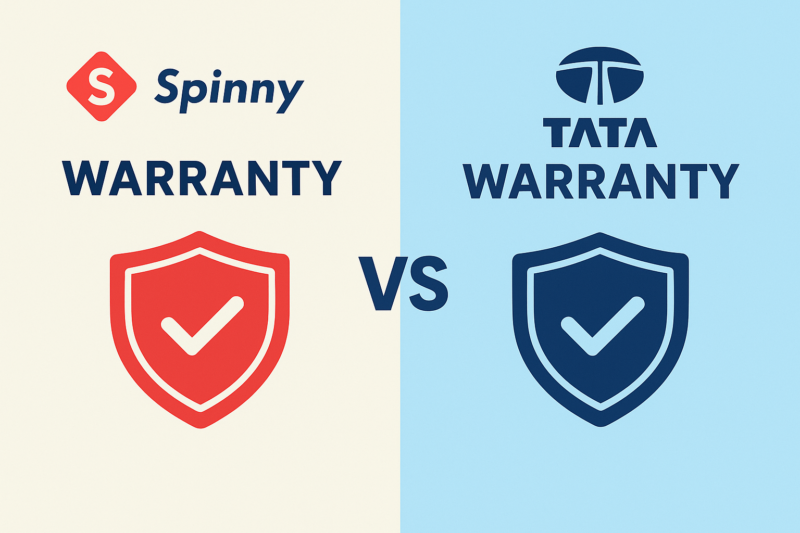Buying a car is a big investment. With a car loan, owning one becomes easier, simplifying the process of getting your dream ride. But it’s crucial to approach it with careful consideration. By understanding crucial aspects such as interest rates and loan terms, the financing process is efficient. So, before you embark on this journey, keep these key factors in mind when applying for a car loan to ensure a smooth and successful car loan application process.
Assess Your Financial Standing
Before diving into car loans directly, it’s best if you take a good look at your finances. Check all your income sources – salaries, bonuses, investments. Then, break down your monthly spending into fixed (like rent, bills) and variable (think dining out, entertainment). Understanding where your money comes from and where it goes helps you make smarter decisions about loans.
Make a thorough budget that outlines your disposable income which is the amount remaining after your expenses are subtracted from your income only once you have a firm grasp of your revenue and expenses. This disposable income is the starting point for figuring out how much you can easily pay back each month on your car loan without going over your financial capabilities.
Know Your Credit Score

A credit score is basically an indicator of your ability to repay debt. Based on your credit history and repayments, your credit score is calculated which is a proof of your creditworthiness. Higher scores indicate reduced credit risk in India, where the scores normally range from 300 to 900. Your credit score is what the banks use to determine how likely you are to make timely and complete loan repayments.
Before you start assessing your creditworthiness, get your credit report done from one of the major credit agencies, such as Experian, Equifax, or CIBIL. Beware that the comprehensive details of your credit accounts, payment history, existing amounts, and any negative remarks like late payments or defaults are all included in your credit report.
The interest rate you can get on a car loan and your qualifying for one are largely determined by your credit score. Based on their credit ratings, lenders usually divide borrowers into risk categories where lower-risk customers are frequently eligible for cheaper interest rates and better loan terms.
Before you apply for a car loan, if your credit score is on the lower scale, you can settle ongoing debts, pay your credit card bills in a scheduled manner, and stop or close opening new credit accounts at banks.
Research Different Lenders
Having determined your credit score and financial situation, it’s time to shop around for the finest auto loan deal. Banks, non-banking financial institutions (NBFCs), and online lenders are just a few of the many possibilities available in India.
To begin with, evaluate the interest rates that various lenders are offering. Although interest rates are an important consideration, don’t overlook other loan features including loan term, processing costs, early repayment penalties, and reputation for customer service. Seek out providers with transparent terms and conditions and competitive interest rates.
Explore peer-to-peer and online lending options along with traditional banks for potentially better terms and faster approvals, but ensure to thoroughly research the reliability and trustworthiness of internet lenders.
Understand Loan Terms and Conditions
Understanding all of the terms and conditions of a car loan is crucial before committing to one. This covers the interest rate, length of the loan, amount of the Equated Monthly Installment (EMI), processing costs, penalties for early repayment, and any additional costs.
When evaluating loan offers, one of the most important things to take into account is the interest rate. It establishes the cost of borrowing and significantly affects both the total amount you will repay over the course of the loan and your monthly EMI payments.
Processing fees are levied by banks and lenders to cover the expenses incurred in handling your loan application. Even though they are frequently non-negotiable, you should be aware of them and account for them when calculating the entire cost of your loan.
If you choose to pay off your loan before the end of the loan period, the lender may charge you penalties, which is called a prepayment penalty. While some lenders would not charge penalties for early repayment, others might charge a fee or place limitations on early payback. Before you sign the loan agreement, be sure you and your lender have agreed upon the prepayment conditions.
Choose what kind of car you want to own
There are numerous options in the car market right now, with each manufacturer bringing out a new model every few months. You should decide what car style you prefer, such as hatchbacks, sedans, SUVs etc, based on your requirements. Make sure to test ride a few cars that you have shortlisted to come to an informed decision.
There also could be times where you might prefer an older make/older version of a car which is only available pre-owned. In this scenario, perform meticulous checks of the car. Call a mechanic and make him search for any technical issues with the car. Also make sure to get a proper understanding of the history of the car.
Typically, interest rates for used car loans tend to be higher than those for new car loans. However, the specific rate can vary based on factors such as your credit score, lender’s policies, and market conditions.
Calculate the Total Cost of Ownership
When taking out a car loan, it’s important to take into account the monthly EMI payment and the entire cost of ownership throughout the course of the loan. In addition to the loan repayments, this also covers additional costs related to car ownership, like insurance premiums, gas prices, maintenance and repair charges, and depreciation.
Evaluate your annual expenses for fuel, maintenance, and insurance premiums before you go ahead and calculate the overall cost of ownership. The total cost of ownership over the loan term can then be calculated by multiplying the above costs by the number of years you plan to own the vehicle.
Subtract any possible trade-in or resale value of the vehicle from the total cost of ownership at the end of the loan period. This will provide you with a more precise estimation of the net cost of car ownership during the loan term.
Choose the Right Loan Type
While there are several types of car loans available in India, each with special characteristics and advantages, fixed-rate loans and floating-rate loans are the two main and popular types of car loans. With a fixed interest rate for the duration of the loan, fixed-rate loans make you pay monthly EMI payments which is a steady and reliable way of payment. This is also the go to choice if you want a certain fixed amount for your monthly payments and is a perfect way to protect against interest rate fluctuations. There are several types of car loans available in India, each with special characteristics and advantages.
In addition to fixed and floating-rate loans, some lenders offer hybrid or combination loans that combine elements of both fixed and floating rates. These loans typically have a fixed interest rate for the initial period, after which the rate becomes floating. Hybrid loans can offer a balance between stability and flexibility, making them a popular choice among borrowers.
When choosing the right loan type, consider factors such as your risk tolerance, market outlook, and preference for stability versus flexibility. Evaluate the pros and cons of each loan type carefully and choose the one that best aligns with your financial goals and objectives.
Consider Making a Down Payment
Even if a loan can be used to pay for the entire cost of the car, there are a number of advantages to making a down payment. A down payment is an upfront contribution, usually stated as a percentage of the total cost, made towards the purchase price of the vehicle.
Reducing the loan amount and hence the monthly interest payments is one of the main advantages of making a down payment. This may result in a lower interest rate and simpler loan repayment over time.
Making a down payment shows the lenders that you are committed to the loan and will make your repayments on time. This could also increase your loan acceptance chances and you might also receive better loan terms. To calculate your down payment, you should keep in mind your budget, other finances, and the loan to value (LTV) ratio.
Read the Fine Print
It is imperative to read the fine print of the loan agreement to understand all the terms and conditions. Go through the clauses, loan tenure, EMI payments, prepayment penalties, processing fees, and other hidden fees.
Do not shy away from consulting with a financial advisor and/or a legal expert for guidance.
Plan for Contingencies
Life can throw unexpected challenges our way, potentially impacting our ability to repay loans. It’s essential to plan for contingencies by building a financial safety net, like emergency funds covering two to five months of living expenses. These funds should be easily accessible and strictly reserved for emergencies. Additionally, consider loan insurance for added financial protection, despite the associated costs, as they provide peace of mind during uncertain times.
To conclude, obtaining a loan for your dream car needs careful consideration, proper research, and apt decision making. Following the ten steps from this guide can help you navigate any car loan process with ease and confidence, and will also ensure you find the best loan for your needs and budget. Don’t forget to research and nitpick everything, from lenders, to loan terms and the conditions, all the while planning for contingencies.



